All Images
News Release 13-076
What Happened to Dinosaurs' Predecessors After Earth's Largest Extinction 252 Million Years Ago?
Fossil-hunting expeditions to Tanzania, Zambia and Antarctica provide new insights
This material is available primarily for archival purposes. Telephone numbers or other contact information may be out of date; please see current contact information at media contacts.
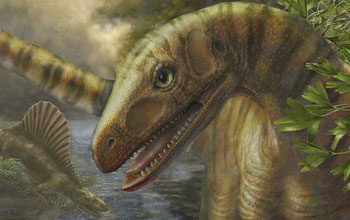
After the ancient extinction, some animals, like Asilisaurus, had more restricted ranges.
Credit: Marlene Donnelly/Field Museum of Natural History
Download the high-resolution JPG version of the image. (234 KB)
Use your mouse to right-click (Mac users may need to Ctrl-click) the link above and choose the option that will save the file or target to your computer.
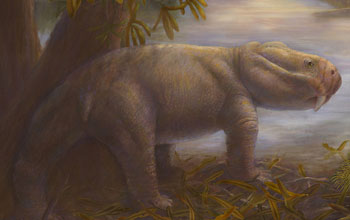
The extinction took out species like Dicynodon; other herbivores then moved in.
Credit: Marlene Donnelly/Field Museum of Natural History
Download the high-resolution JPG version of the image. (321 KB)
Use your mouse to right-click (Mac users may need to Ctrl-click) the link above and choose the option that will save the file or target to your computer.
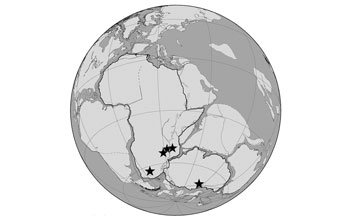
Fossils from South Africa, Zambia, Malawi, Tanzania, Antarctica were part of the research.
Credit: U of Texas at Austin/UW
Download the high-resolution JPG version of the image. (239 KB)
Use your mouse to right-click (Mac users may need to Ctrl-click) the link above and choose the option that will save the file or target to your computer.
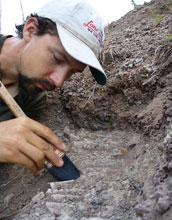
Paleontologist Christian Sidor excavates a fossil in Tanzania.
Credit: Linda Tsuji
Download the high-resolution JPG version of the image. (464 KB)
Use your mouse to right-click (Mac users may need to Ctrl-click) the link above and choose the option that will save the file or target to your computer.
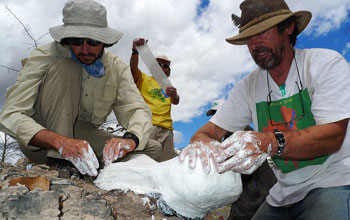
Scientists Ken Angielczyk, Roger Smith and Sebastien Steyer cast a skull of a dicynodont.
Credit: Christian Sidor/UW
Download the high-resolution JPG version of the image. (303 KB)
Use your mouse to right-click (Mac users may need to Ctrl-click) the link above and choose the option that will save the file or target to your computer.
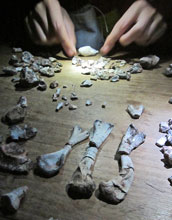
Fossilized remains being sorted of a new specimen of Asilisaurus collected in Tanzania.
Credit: Roger H. M. Smith
Download the high-resolution JPG version of the image. (321 KB)
Use your mouse to right-click (Mac users may need to Ctrl-click) the link above and choose the option that will save the file or target to your computer.
